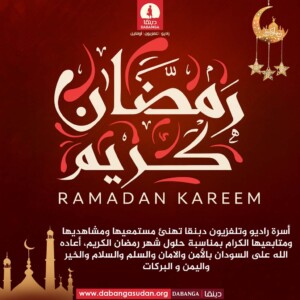Sudan’s PM Hamdok: ‘Cultural diversity is a blessing’
Sudan’s Prime Minister Abdallah Hamdok has launched a project on Sudan’s cultural policies, which was developed over the past year by a preparatory secretariat at the Ministry of Culture and Information. The PM lauded cultural diversity as a blessing and as part of the spirit of the December revolution.
 Meeting of the Social and Cultural Development Sector of the Council of Ministers in Khartoum on Saturday (SUNA)
Meeting of the Social and Cultural Development Sector of the Council of Ministers in Khartoum on Saturday (SUNA)
Sudan’s Prime Minister Abdallah Hamdok has launched a project on Sudan’s cultural policies, which was developed over the past year by a preparatory secretariat at the Ministry of Culture and Information. The PM lauded cultural diversity as a blessing and as part of the spirit of the December revolution.
Discussions on peace building and peaceful coexistence were the main subject of a meeting of the Social and Cultural Development Sector of the Council of Ministers in Khartoum on Saturday, headed by the Minister of Higher Education and Scientific Research, Intisar Segheroun.
PM Hamdok called for dealing with the cultural diversity as a blessing, affirming his support to the management of the diversity as part of the process of complying with the spirit of the December revolution toward achieving national harmony and cohesion, and spreading the spirit of tolerance and acceptance of ‘the other’.
In his address, Hamdok stressed that “cultural work is not a routine task, but a task that stems from the spirit of creativity, launched by innovators to create a new reality”. Hamdok underlined that “the management of diversity and acceptance of ‘the other’ is required to be imposed through all state institutions and the issuance of accompanying decisions that consolidate its role.”

‘We must reactivate Sudan’s cultural economy’ – PM Abdullah Hamdok
He emphasised the importance of “reactivating the cultural economy” as a tributary that supports the state’s economy, citing as an example Nigeria, which he said, had jumped from the second economy in Africa to become the first one on the continent, surpassing South Africa, thanks to its inclusion of the cultural economy in the structure of its economic dealings.
The Prime Minister called for protection and respect of collective cultural property.
The Minister of Culture and Information, Hamza Ball, called for adoption of the political culture project in order to link the management of diversity to overcome the process of discrimination in dealings due to ethnicity, gender, or colour, and to complete the process of integration between the groups of society.
The Minister of Religious Affairs and Endowments, Nasr Eddin Mufareh, explained that the project for peace building and peaceful coexistence aims to deepen the spirit of tolerance and coexistence among the components of society, bolster the spirit of patriotism, strengthening the spirit of love and peace, improving the social fabric, raising the capabilities of young people to re-build the society, and reactivating the role of women in building social peace and rejecting racism and tribalism.
He indicated that a vision has been formulated for joint convoys of scholars, intellectuals, academicians, writers and athletes to establish academic and specialized workshops to support the peaceful coexistence project to reach a large social conference for each state, with the aim of emphasizing the rejection of racism and the importance of raising the spirit of belonging and patriotism and to inform about the relation of the citizen with the homeland, the citizenship rights and the ability of the Resistance Committees to lead the national unity and to emphasize the goals of the revolution, pointing out that the project targets the states of Darfur, South and West Kordofan and the states of the East.
The official of the file of Rural Development File at the Ministry of Social Development, Amal Abdel Aziz Sayed Mohamed, presented a proposal for a project for peace building peace and peaceful coexistence, which is based on spreading the culture of peace by raising awareness of the concepts and principles of social peace and training to acquire the knowledge and skills necessary to analyse and manage disputes in a way that consolidates a culture of peace.
She indicated that the project adopts the concept of social peace building in the Sudanese society by preparing the society to support the social peace, explaining that the expected results of the project are preparing a strategy for social peace, security and stability of societies and consolidating the principles of coexistence, noting that the project targets the war-affected states.











 and then
and then